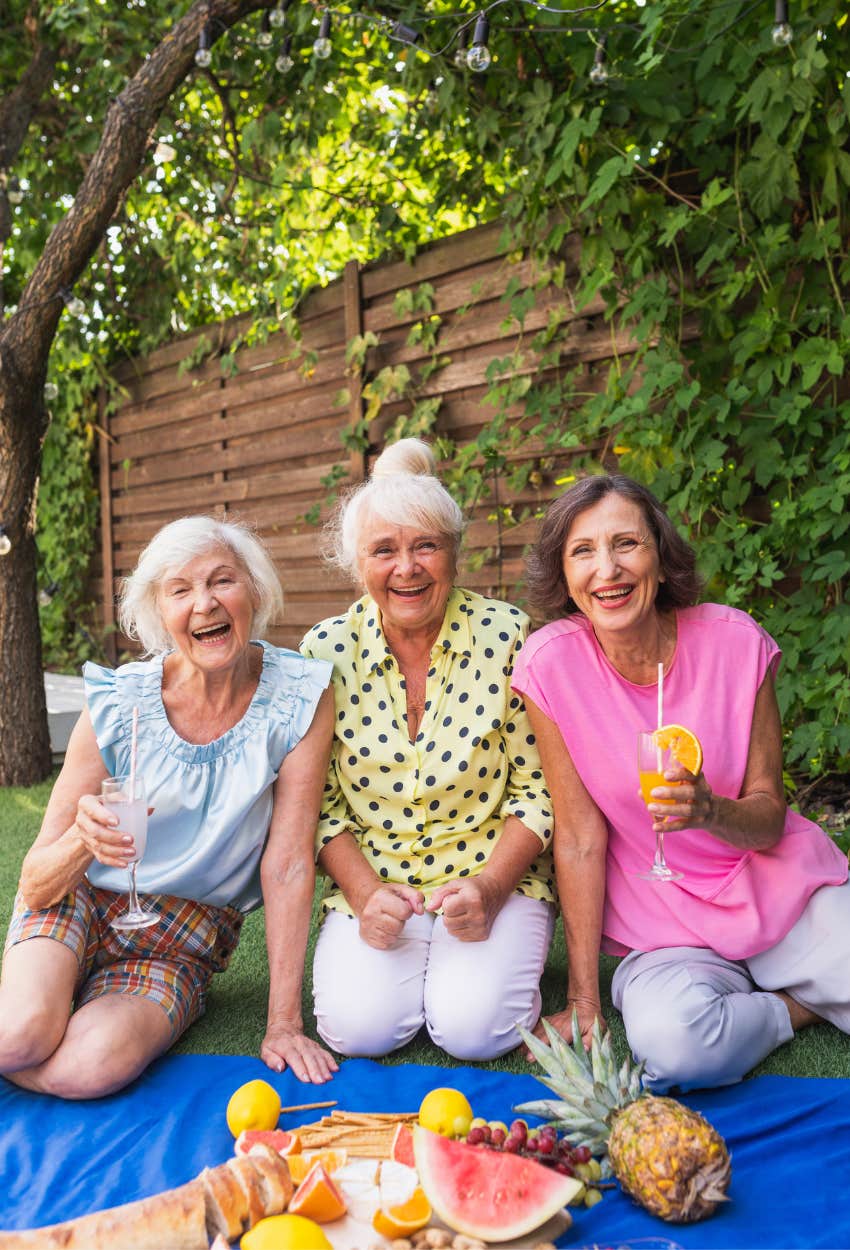Social Expert Says Not Partying Is Making Society Worse
Socializing may be to the secret to well-being.
 Dejan Dundjerski | Shutterstock
Dejan Dundjerski | Shutterstock In recent years, the homebody lifestyle has taken center stage. The art of staying at home and opting for alone time instead of attending social events has become the norm. However, the preference for PJs and parking it on the couch over the glitz and glam of a night out on the town might not actually be that good for your health.
In news that most would never have thought would come true, social expert Evan Cudworth warned in a recent TikTok video that avoiding social gatherings could have a negative impact on both individuals and society as a whole. To the introverts out there, hold on tight; it's time to socialize.
A social expert said staying home instead of partying is making society worse.
Got trust issues? We don’t blame you, but it might not just be because of your personal relationships. Cudworth argued that not being social and attending events such as parties, ceremonies, and celebrations can slowly deteriorate your trust in society — apologies in advance to the introverts and homebodies out there.
 Jupiterimages | Canva Pro
Jupiterimages | Canva Pro
It may be tempting to stay at home and isolate yourself from the world. And hey, social media, streaming services, and an endless amount of technological distractions don’t really help the idea of leaving the comfort of our homes. However, social events bring together people from different walks of life, and socializing with them helps build social trust that brings communities together. That's something you can't achieve through a phone screen.
Whether it's dancing on the floor with strangers, attending birthdays, or experiencing shared moments of joy or grief, these experiences help us feel connected, human, and part of something larger than ourselves.
Isolation can destroy human connection, which is integral to a healthy life.
Cudworth's theory touches on the core of what it means to be human. Cudworth pointed out that engaging with people who don’t look, think, or act like you is crucial for breaking out of our comfort zones and broadening our perspectives. Engaging in social interactions with people who don’t share the same culture as you gives you the chance to learn from others and develop empathy.
However, you would not be able to achieve this if you stayed at home. Lounging in your home and not engaging with others narrows the view of the world around you. Cudworth stated that every time we choose to isolate ourselves over nurturing social connections, we distance ourselves not only from others but also from the shared values and trust that form the foundation of a functioning society. Making these moments of human connection crucial to our collective well-being.
Dr. Craig Sawchuk, a Mayo Clinic psychologist, explained it simply, "We are social animals by nature, so we tend to function better when we're in a community and being around others." In fact, in total agreement with Cudworth, Dr. Sawchuk stressed that for the elderly and other isolated groups like new moms, rates of depression and anxiety are higher because of limited socialization.
Humans are hardwired to thrive in a community setting.
While not attending social gatherings may make you feel comfortable in the moment, it can create long-term consequences for your mental and emotional health. Research has found that social interaction even has an impact on longevity. So much so, that aging individuals with a strong social network are 50% more likely to live longer than their lonely peers.
 Oneinchpunch | Canva Pro
Oneinchpunch | Canva Pro
Cudworth explained that if you're feeling off or anxious, that may be because you have a need to belong and engage with others. This is part of our human DNA — our desire to interact and be part of social structures. For the ones that feel a disconnect or have severe FOMO (fear of missing out), the solution is to no longer stay in but to get back out there and socialize.
Whether it’s a party, a group outing, or simply spending time with friends, the act of socializing can alleviate feelings of anxiety and strengthen our bonds with others. The desire to belong and participate is not only normal but necessary for our well-being, and embracing these opportunities can enrich our lives in ways that isolation simply cannot.
Erika Ryan is a writer working on her bachelor's degree in Journalism. She is based in Florida and covers relationships, psychology, self-help, and human interest topics.

